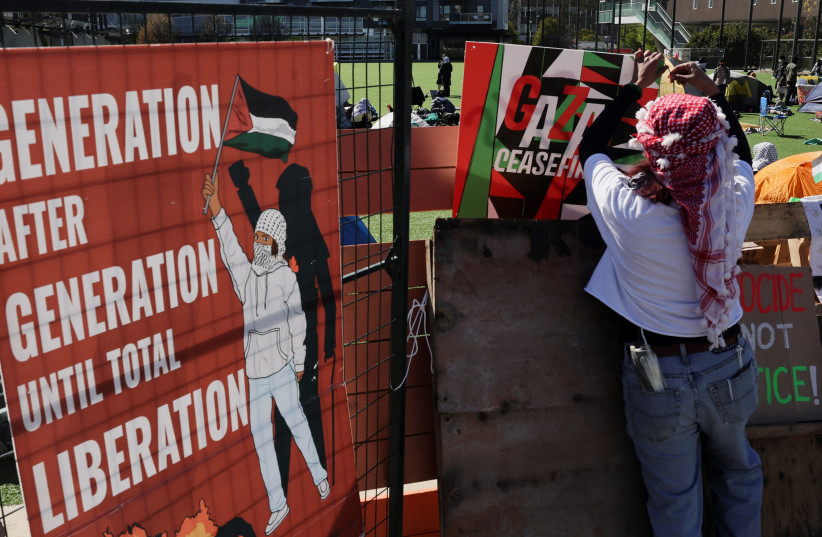(JTA) - A Vancouver comics festival apologized to a Jewish artist it had banned over her past Israeli military service and a Seattle museum announced it was recommitting to an exhibit on antisemitism that prompted a staff walkout, in two reversals of arts-world sanctions connected to the Israel-Hamas war.
Both the Vancouver Comic Arts Festival and the Wing Luke Museum faced significant backlash over the actions they took because of pro-Palestinian activism.
“VanCAF has lost and continues to lose the trust of many we have sought to serve,” the Vancouver festival said in a social media apology late Sunday, days after announcing that it was banning American-Israeli comics artist Miriam Libicki following activist complaints over her past IDF service.
The festival didn’t name Libicki in either its initial statement banning her - which it quickly removed from social media following backlash - or its lengthy new apology. But the ban referenced Libicki’s previous IDF service, which she has turned into a comic, while the apology referenced another specific work of hers: “But I Live,” a collaboration with Holocaust survivors.
After criticism from both Libicki and leaders of major Canadian Jewish institutions, VanCAF said in its apology that “the vast majority” of people involved in the ban have resigned from its board. The group said it was entering a new “transition period” as a result of the fallout, and added that it has no full-time staff and it is entirely volunteer-run.
Art world turmoil amid conflict

“Conflating the political with the practical safety of those attending our festival was the wrong stance to take,” the apology noted. VanCAF said it had issued the ban as a result of safety concerns after deeming that pro-Palestinian backlash to Libicki’s presence at its last two festivals had created a “volatile atmosphere.”
(A synagogue in Vancouver was targeted in an arson attack last week, elevating alarm after shooting attacks on Jewish sites in Toronto and Montreal. Authorities in Vancouver are investigating the arson as a hate crime.)
VanCAF is one of a growing number of arts institutions to face turmoil over the war, which has left some Jews feeling uncertain about their place in the art world.
In Seattle, the Wing Luke Museum, an Asian American, Native Hawaiian, and Pacific Islander heritage museum in Chinatown, will move forward with an exhibition on how the region’s Asian, Jewish, and Black communities have all jointly responded to hate. The announcement came days after several museum staffers walked off the job, objecting to what they said were “Zionist perspectives” in the exhibit; the museum had temporarily shuttered following the walkout.
“We remain committed to the exhibit’s core message of confronting hate,” the museum said in a joint statement with the Washington State Jewish Historical Society, an exhibit partner, and the Black Heritage Society. “We acknowledge the complexity of this deeply challenging work. We understand that the bigotry, bias, and racism that affect our communities go well beyond us to touch many. Though recent events have caused significant harm, we are undeterred.”
The three groups also said they would make some unspecified changes to the content, “offering additional framing on its genesis, the initial public reaction, and the history of our communities working together” before the exhibit reopens on June 30. Staff had objected to some of the exhibit’s descriptions of modern-day antisemitism, including the inclusion of campus protests over October 7, and had demanded that the museum make changes including acknowledging a lack of Palestinian perspectives. The exhibit had been in the works since before October 7.
